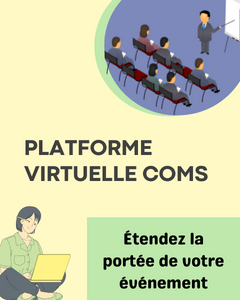Conférences > Mathématiques > Géométrie et topologie > États-Unis
Sélecionner un pays
1
AMS Special Session on Scalar Curvature and Topology
28 mar 2026 - 29 mar 2026 • Savannah, Georgia, États-Unis
Identifiant de l'évènement:
1682593
2
Foundations of Computational Geometry and Topology
18 mai 2026 - 21 mai 2026 • Providence, États-Unis
Identifiant de l'évènement:
1680239
3
Machine Computation in Homotopy Theory
22 jui 2026 - 26 jui 2026 • Providence, États-Unis
Identifiant de l'évènement:
1680193
4
Synergies between Geometry, Probability, and Computation in High Dimensions
31 jul 2026 - 02 aou 2026 • Providence, États-Unis
Identifiant de l'évènement:
1680243
5
Gross-Zagier formula 40+ years later
03 aou 2026 - 07 aou 2026 • Massachusetts Institute of Technology, Cambridge MA, États-Unis
Identifiant de l'évènement:
1649440
Page web:
6
Semester Program — Computations on K3 Surfaces and Related Varieties
09 sep 2026 - 11 dec 2026 • ICERM, Providence, RI, États-Unis
Identifiant de l'évènement:
1649452
7
Cubic Fourfolds, Gushel-Mukai Fourfolds, and Hyperkahler Manifolds
26 oct 2026 - 30 oct 2026 • Providence, États-Unis
Identifiant de l'évènement:
1680241
8
Moduli of K3 surfaces
09 nov 2026 - 13 nov 2026 • Providence, États-Unis
Identifiant de l'évènement:
1680317
Conference-Service.com met à la disposition de ses visiteurs des listes de conférences et réunions dans le domaine scientifique. Ces listes sont publiées pour le bénéfice des personnes qui cherchent une conférence, mais aussi, bien sûr, pour celui des organisateurs. Noter que, malgré tout le soin que nous apportons à la vérification des données entrées dans nos listes, nous ne pouvons accepter de responsabilité en ce qui concerne leur exactitude ou étendue. Pensez donc à vérifier les informations présentées avec les organisateurs de la conférence ou de la réunion avant de vous engager à y participer!
Dernière mise à jour: 9 novembre 2025



